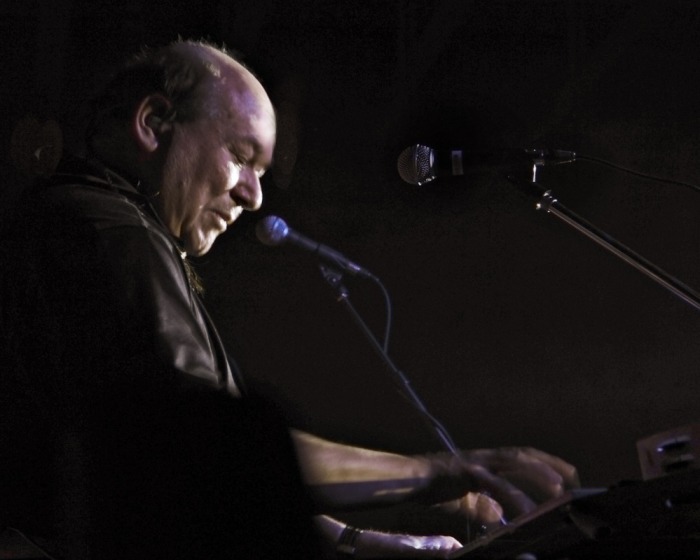Entertainment July 30, 2019
Lighthouse's co-founder, Paul Hoffert, is still revolutionizing the world. Here's the in-depth interview.


“Jack of all trades, master of none.” So goes the figure of speech to describe people who have dabbled in many skills without having mastered any. This phrase, however, cannot be said about Paul Hoffert, the co-founder of the Canadian rock band Lighthouse.
1969 was the year, and Paul was only twenty-six. Ambitious and brilliant, he and co-founder Skip Prokop revolutionized music forever, creating a band that would play alongside Miles Davis, The Doors, and The Who. Highly influential, their unique style revolutionized jazz through its combination with rock-and-roll. No wonder the ’70s were so cool.
The band then went on to win multiple awards (including a Juno), have earned thousands in charity events (the most recent being for the Israeli Guide Dog Center), and had a twenty-year partnership with World Vision: Sponsor a Child. They are now celebrating their 50th Anniversary.


But Paul’s career was not exclusively Lighthouse. He has written five books on a vast array of topics, including cyberspace and video games; he has also scored over thirty feature films, was the president of CulTech Research Centre at York University, and was a Faculty Fellow at Harvard.
And, to top it off, Paul has also received the Order of Canada.
My father, best friends with Paul’s filmmaker-son, David Hoffert, described Passover at the Hoffert House as “Seder Night Live:” “Dinner would end and we’d go straight to jamming. Then, at around 1:00 am, we’d all pass out. But not Paul. He’d be up until sunrise, jamming, working, or reading. He didn’t sleep.”
Where some are Masters of None, Paul is a Master of All. We call him the”chosen uncle” in our family. But maybe we should start calling him the Chosen One.
I was fortunate enough to get an interview with Paul. He speaks about the future of the band Lighthouse, the state of the internet, and just about everything in between.

ENTITY: Let’s start personal, what is one thing that you feel is wrong with the world? And how would you go about changing it?
Paul (P): Our biggest problems are greed, shortsightedness, and the rate of technological progress. These same human traits have served our evolutionary success and progress very well in the past but now are poised to annihilate humankind within the next hundred years or less.
Greed makes us strive to excel and exceed. But it also leads us to consume more food, raw materials, and manufactured goods than we need, leading to unsustainable growth. Shortsightedness genes allow us to concentrate on immediate existential threats — we are survivors. But it keeps us from doing the long-term “right things” like preventing climate change, consuming less of our energy supplies like non-renewable carbon fuels and limiting our increasing population while our resources dwindle.
Lastly, technology has brought us robots, artificial intelligence, and changes in our DNA (artificial evolution). These will make people obsolete and lead to new super-humans (as in next-stage homo species) that will replace humans just as we replaced cro-magnon and other hominids.
ENTITY: Lighthouse is celebrating its 50th Anniversary this year. What do you hope the band achieves in the next ten years that they haven’t already?
P: I never expected that Lighthouse would survive for fifty years. Or that I’d still be jumping around on stage and getting a thrill from sharing transcendental moments with audiences. Part of our long-term success is due to our ability to trigger happy memories for older audience members. Younger audiences appreciate our musicianship, improvisations, and great songs. But we haven’t yet evolved our musical style to connect viscerally with young audiences. My personal hope is that my bandmates and I might be able to encompass the best of what the present and future have to offer musically while keeping our fans happy.
ENTITY: What’s your process like when coming up with a new song or film score?
P: The industry response to “what comes first, the music or lyrics?” is “the phone call.” There’s nothing like getting a gig for a performance, recording, or film score to get my juices flowing. Professionals rarely lack innovation– it’s what we do for a living and how we define ourselves. Lighthouse would have never come out of retirement (several times) without offers to perform for audiences, make recordings and TV shows.”
ENTITY: Aside from being the co-founder of Lighthouse, you’ve also written books on navigating cyberspace, shaping businesses, and even scoring music for video games. What drives you to create works spanning so many different mediums?
P: The theme of my life is simple and focused. I love innovation. I love creating new things that interest and engage people.
ENTITY:In your book All Together Now (released in 2000), you disputed the long-held claim that the internet is dividing people. Nineteen years later — and during a time of such political divide — do you still believe that the internet is bringing people together? Why?
P: The internet has brought people together in many ways. Social media are good examples of this. But the cost has been a loss of face-to-face interactions. Like most technologies, there are plusses and minuses. You invent a knife and it helps you kill animals for food but it also enables you to kill other people.
ENTITY: What do you want your listeners to take away from your music?
P: A combination of enjoyment, appreciation, and being uplifted.
ENTITY: Any advice for aspiring visionaries?
P: Shakespeare said it well: “To Thine Own Self Be True.” Be the best version of yourself instead of a poor imitation of someone else.
ENTITY: Thank you, Paul.
P: Thanks.